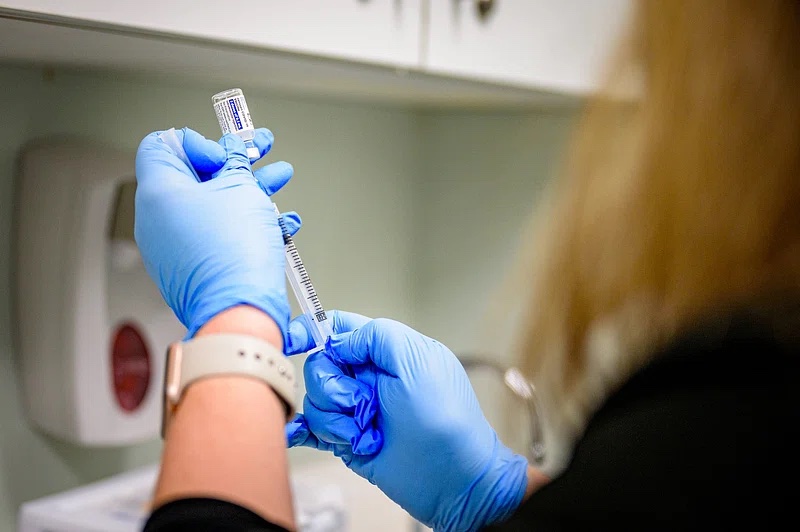Ava Benedict
Staff Writer
The Food and Drug Administration (FDA) recently made a decision that is rapidly changing the course of scientific history. On Aug. 27 2025, Pfizer and BioNTech — two major vaccine distributors — announced that the FDA approved a new round of COVID-19 vaccines.
The FDA is in charge of analyzing the safety of vaccines for the American people, including COVID-19. These vaccines target new variants, or evolved versions, of the virus. Variants are often highly contagious and can result in more severe symptoms. However, the FDA also introduced new limitations on who can obtain the updated version of the vaccine, which would protect against these new variants.
The FDA has now claimed that only those who are deemed “at-risk” will be eligible for the new dose. This means that in order to receive the vaccine, patients must provide documentation of a serious medical condition, such as a weak immune system, depression, or diabetes. For healthy adults and children, payment for vaccines will be out-of-pocket or they will have to find a doctor willing to give them an “off-label” shot. “Off-label” shots are still the same safe and authorized vaccine, but are used for a different group of people than the guidelines specify.

Associate biology professor and microbiologist Dr. Brittany Gasper is concerned about the consequences of these new vaccine limitations.
“Vaccinating one person can help everyone, but limiting vaccines can hurt everyone,” said Gasper. She elaborated on this concept by explaining, “when vaccine access is restricted, we give the virus more room to evolve and everyone pays the price for that.”
According to Johns Hopkins University, “Voluntary COVID-19 non-vaccination has caused at least $1 billion of harm each day in the United States since vaccines became widely available.” This harm includes increases in hospitalizations, deaths and costs to healthcare systems.
Although professionals are concerned about the harm that could come with non-vaccination, many Americans are prioritizing their personal freedom and have rallied behind Robert F. Kennedy Jr., the leader of the U.S. Department of Health and Human Services.
Kennedy is currently testifying in a hearing with the Senate Finance Committee for his conflicting interests with the Centers for Disease Control and Prevention (CDC). During the hearing, he took a critical approach to COVID-19 vaccines. “We were told again and again that the vaccines would prevent transmission. It wasn’t true,” said Kennedy.
As disagreements over vaccinations carry on, these new limitations are making history in the scientific field.
The American Academy of Pediatrics (AAP) is the largest association of professional pediatricians in the United States and often uses the FDA’s recommendations to guide parents on their children’s medical decisions. For the first time in 30 years, the AAP diverged from the vaccine guidelines of the FDA. The AAP created their own separate immunization schedule that continues to recommend COVID-19 vaccines for healthy children. This historic change will impact U.S. healthcare and wellness.
Vaccine access impacts each American, and debates over vaccinations will have lasting effects on future generations.






